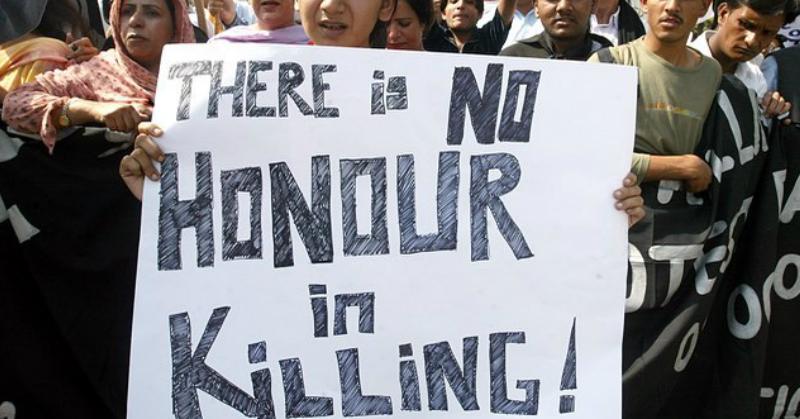While the ongoing elections have been ruling the headlines lately, a horrific incident of honour killing in Maharashtra has brought to light the chilling reality of inter-caste marriages in India.
On May 1, a couple was set ablaze by the woman’s relatives in Ahmednagar, Maharashtra, because they were opposed to their marriage. Her family did not approve of the fact that they belonged to different castes. “Mangesh Ranasingh (21), a construction worker and Rukmini (19) got married in November last year against the wishes of her parents. On April 28, she came to Nighoj village to meet her parents. On May 1, Mangesh came to take her to their marital home,” Inspector Vijaykumar Botre told a leading daily.
“However, her father Rama Bharathiya, her uncle Surendrakumar and maternal uncle Ghanshyam Ranej locked the couple in a room and set them on fire,” said Botre.
When the neighbours heard the couple’s screams, they alerted the police and rushed them to a hospital in Pune. While Rukmini died of burn injuries on Sunday, her husband is battling for life with over 40 per cent burns, an official said.
India’s History With Honour Killing
India has a shameful track-record when it comes to crimes related to inter-caste and inter-religious marriages. The problem stems from the fact that in India’s traditional patriarchal society, women aren’t considered individuals with their own agency–they’re not allowed to interact with men, and have no say when it comes to choosing their future husband.
The archaic caste system, which is still very prevalent in Indian society, complicates matters further. If a woman falls in love with and chooses to marry a man from another caste, she is perceived to be polluting her caste and bringing ‘dishonour’ to her family. Her kin can go to extreme lengths to punish her for defiling her family’s ‘honour’, leading to violent and often fatal consequences. Couples in inter-faith marriages also deal with similar repercussions.
Where The Problem Lies
According to data by the National Crime Records Bureau, at least 288 cases of such violence were reported in the period 2014-2016.
The main issue pertaining to the problem of honour killing in India is that there are no specific laws to punish the perpetrators of such crimes. They are, instead, prosecuted under various other sections of the India Penal Code, including homicide and culpable homicide not amounting to murder. This results in many incidents going unreported.
Then there is the issue of the Special Marriage Act, which pertains to inter-faith marriages in India. According to the provisions of the Act, a couple needs to publicly announce their marriage plans a month before the wedding. This gives the parents and other motivated parties who oppose the marriage enough time to act against the couple and prevent the marriage from taking place.
The Supreme Court of India (SC) on March 28, 2018, passed a landmark judgment in Shakti Vahini v. Union of India case, which treats honour-based violence as not only a matter of criminal law, but also as contrary to adults’ fundamental right to exercise choice.
The Way Forward
The SC suggested preventative measures to the government, which are to be followed until a proper law is legislated. Despite the framing of these guidelines, the continuing incidents of honour killings are proof that there is a need for a proper and strict law to curb such incidents.
A major step to prevent honour killings from taking place would be to set up programmes to spread legal awareness about the rights of citizens. According to the Supreme Court, the consent of the family or the community is not necessary once two adult individuals agree to enter into a wedlock. Moreover, any communal body that commits, or attempts to commit, any crime in the name of honour against such a couple will be held liable under the Indian Penal Code.
Rekha Sharma, the chairperson of the government’s advisory body, the National Commission for Women, told BBC, “The government needs to do more in sensitising the police and legal officers about the Special Marriage Act, as the law helps in stopping conversion yet still enabling inter-faith marriage.”
Featured Image: Instagram
POPxo is now available in six languages: English, Hindi, Tamil, Telugu, Marathi and Bangla.
AWESOME NEWS! POPxo SHOP is now Open! Get 25% off on all the super fun mugs, phone covers, cushions, laptop sleeves, and more! Use coupon code POPXOFIRST. Online shopping for women never looked better!



